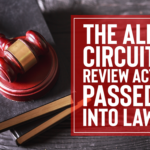The United States formally withdrew military forces from Iraq in December 2011 after over eight years of presence in the country, but, nearly five years later, whistleblower lawsuits alleging that contractors providing services to the US government violated the False Claims Act (FCA) continue to persist. In just the last month, the Department of Justice has brought claims that DynCorp overcharged the US government in its war efforts through its subcontractor Corporate Bank, as well as against the CEO and CFO of Louis Berger Group Inc. for allegedly using accounting schemes to submit inflated claims for overhead costs during the Afghanistan and Iraq wars. Given the massive undertakings by the United States in both Iraq and Afghanistan – the Iraq War alone is estimated to have cost the US government $2 trillion in initial costs in the ten years following the March 2003 invasion – we can expect to see more whistleblower suits in the future. The whistleblowers who provide information to the Department of Justice allowing prosecutors to bring successful FCA suits can also expect to receive substantial financial award for their assistance to the government’s efforts.
The Allegations Against DynCorp
DynCorp is a company that was awarded a contract by the federal government in 2004 to provide training for civilian police forces in Iraq. The US government’s complaint against DynCorp alleges that the company knowingly allowed Corporate Bank, its subcontractor, to repeatedly submit inflated and unsubstantiated invoices for hotel lodging, translating, security, and other overhead expenses, and then added its own unjustified markup on top of the already inflated invoices.
The Louis Berger Group Allegations
The US government initially resolved civil and criminal claims against the Louis Berger Group (LBG) in 2010, which included a $50.6 million fine. LBG overbilled the federal government for work it did in aiding in reconstruction efforts by inflating the rates it was actually paying workers on invoices and billing the government for hours never actually completed. LBG systematically engaged in this fraud through accounting schemes overseen and directed by its CEO and CFO, both of whom have been sentenced to prison. The new civil allegations are brought against the two men in their personal capacity. The government became aware of the fraud through a whistleblower at LBG, Harold Salomon, who worked as an accountant at LBG from 2002 to 2005.
The Financial Rewards Available to Whistleblowers
The FCA was originally signed into law by President Lincoln in 1863 to hold unscrupulous government contractors accountable for their dealings with the US military during the Civil War. For over 150 years, it has done just that, and pursuant to the FCA those whistleblowers who provide information to the federal government substantiating such claims can be rewarded. This includes members of the government and armed forces.
If you are in a position where you have information relating to fraud against the US government you may be able to recover a large whistleblower award from the federal government, but you must go about providing the information in the proper way. At Kreindler & Associates, we assist potential whistleblowers in coming forward with evidence of all kinds of fraud. If you have suspicions of wrongdoing that you are contemplating disclosing, contact us today for a consultation on your rights and options as a whistleblower.




